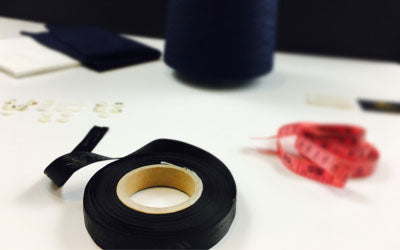Built on duty-free entry to the EU, the UK fashion sector faces the possibility of export tariffs on its largest trading partner from 2021 onwards. Some companies are hoping for post-Brexit liberalized regulation, but EU firms are pushing back on concerns that this might offer an unfair advantage to British producers. The British Fashion Council (BFC) goes on to stress that Brexit is a situation that can be stopped without a contract. The fact that there can still be no consensus continues to have a detrimental effect on our business. It is projected that transitioning to World Trade Organization (WTO) regulations would cost the fashion industry between £ 850 and £ 900 million* (source: UK Fash) based on export figures from 2018. No one has a magic crystal ball with all the answers, as with any question concerning Brexit. Even now, with less than two months to go, it's still uncertain how we're going to leave, and what effects the fashion industry will have on leaving. That being said, how the impact of such events could ripple through the sector can be seen. Although we don't know precisely what people's free movement would look like, whether there will be higher import tariffs, or whether major brands will migrate overseas, we can make educated evaluations of the effect on the industry that these factors could have.


SKILLS AND TALENT:
Undoubtedly, the fashion industry is a crucial part of the UK economy. According to the Evening Standard, it's a business worth £32 billion a year, and it currently profits enormously from the free movement of citizens across EU states. This access to a diverse European talent pool of students, who have been able to openly cross borders to study and make a creative contribution to the UK, has been an immense contribution to the development of the fashion industry in the UK.There are currently over 10,000 Europeans employed in the UK fashion industry and it will become even harder for European students to remain in the UK and contribute to the sector if free movement stops. This poses an issue for the UK fashion industry, as it will limit access to fresh ideas and viewpoints that have influenced the UK's diverse and vibrant fashion landscape.
.
TRADE AND TARIFFS:
Every year, the UK imports almost £10 billion worth of clothes and accessories from the EU. It's hard to know what potential import tariffs would look like without understanding what kind of contract we're leaving with. If tariffs rise, importing goods into the UK would become more costly, cutting the profits of UK companies and potentially contributing to higher prices for consumers. In several different countries, the process from the creation of designs, to manufacturing, production, content procurement, wholesale, and, eventually, retail, always takes place. Leaving the EU could cripple the pace and ease of moving goods that are needed to keep the fashion industry up to date. They risk lagging behind their European counterparts if British designers are slowed by higher costs.


CAPITAL FLIGHT:
Logistics problems could be catastrophic for an industry that is founded on speed and distribution. The instability surrounding the supply chains in Britain and the potential for higher costs could well lead to the relocation of the largest players in the fashion industry in the UK.Delays in their delivery from design to a customer could result in decisions to move, at a cost to the UK economy. That puts at risk the £30 billion that fashion contributes to the UK economy every year, a sector that has been severely ignored during the Brexit campaign and negotiations. There has been a lot of controversy about the fishing sector, which contributes less than £2 billion annually to the UK economy, but not anything about the fashion industry has been said.
.
HOMEGROWN RESURGENCE:
Since the 1970s, the UK hasn't been a major clothing manufacturer, and most of the clothes you wear today are likely to be made in Asia. As offshoring became the tool of choice for fashion brands and retailers seeking to reduce prices, British manufacturing declined in the 1980s. In recent times, in rapidly developing countries such as India, China, and Brazil, there has been a bit of a revival in British-made fashion, such as knitwear. With the looming danger of higher tariffs and a devaluation of the pound, the increased opportunities to produce and export clothing in the UK may be one good thing to come out of Brexit. British manufacturing has done very well since the vote to leave the EU in 2016, with increasing revenues coming from Asia, the Middle East, the Americas, and even the EU itself. This provides an opportunity to produce more clothes in the UK, which will carry many advantages with it.
While we are still no closer to understanding what will happen next March 29th, we do understand that an end to free movement, the introduction of import tariffs, and the relocation of companies could send shockwaves through the fashion industry in the UK. Although British manufacturing will see a boom, it is difficult to see the other detrimental effects of Brexit being offset by this.

The Cotton Team!

